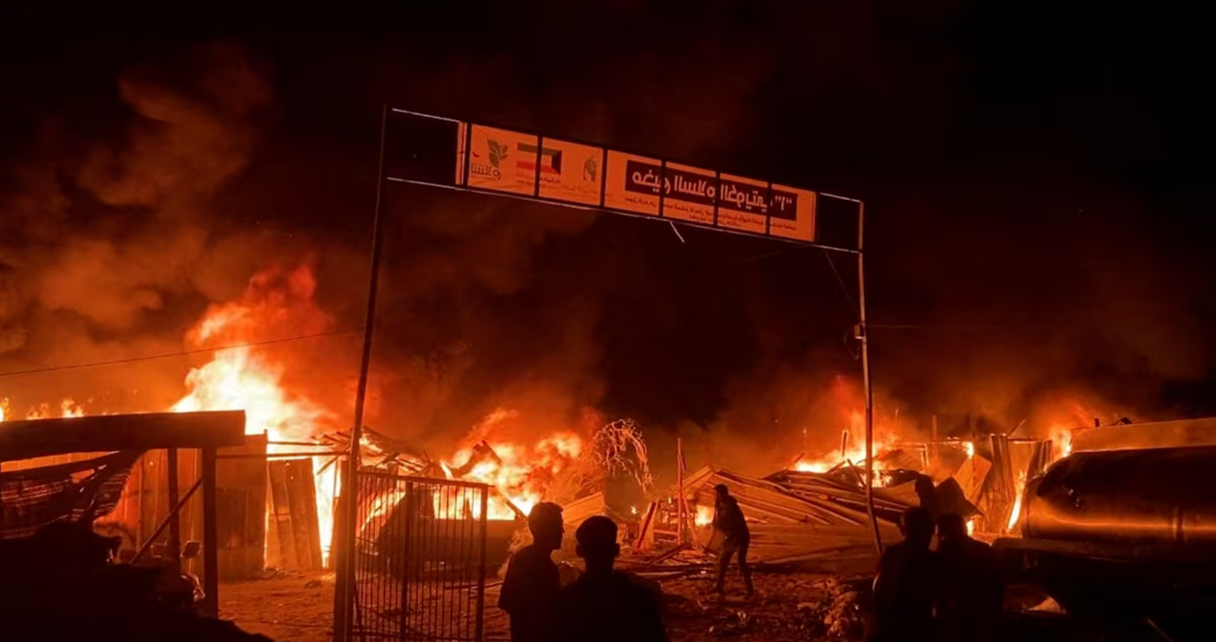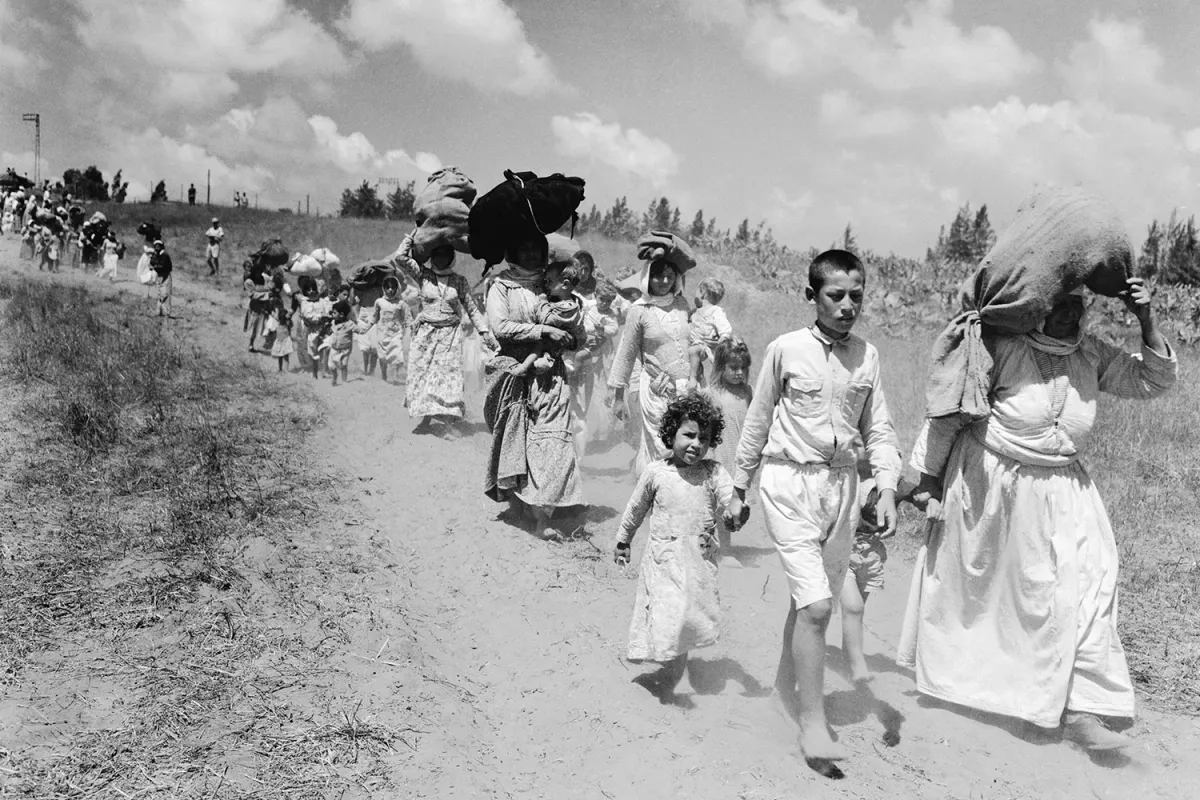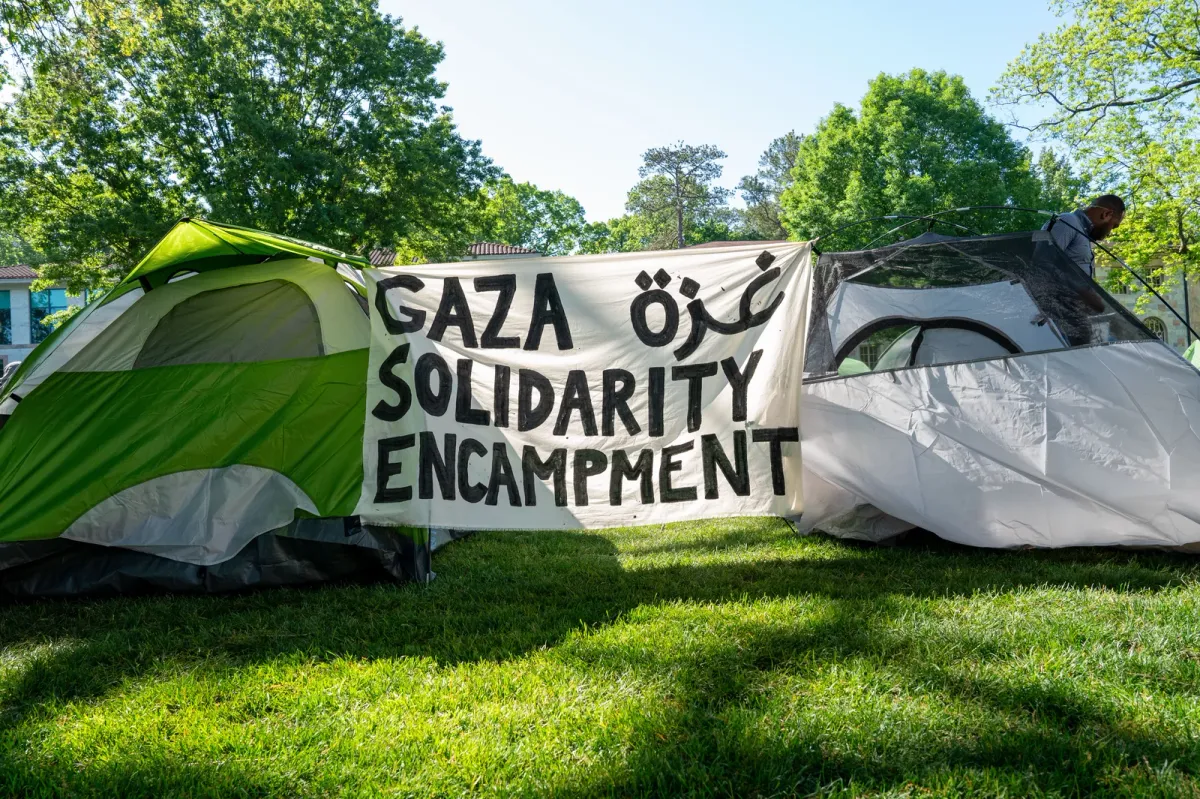Why I don't talk about the Israeli hostages
• public
This post is available in French here.
On October 7th, my cousin was camping in the south of Israel, close to areas attacked by Hamas and Palestinian Islamic Jihad. To this day, the thought of her being kidnapped, or worse, haunts me. An acquaintance from my Israeli college days lives in one of the kibbutzim attacked on October 7th and lost family in the attacks. Some of his close friends are among the kidnapped, others died in Hamas captivity.
And yet, despite such close proximity to the Israeli victims of October 7th, I don’t write much about them. My mother, who reads my blog, often asks me: Why can’t you show empathy to both Palestinian and Israeli victims? Why can’t you call for an end to the bombing of Gaza and a return of the hostages?
And my mother isn't the only one asking these questions: many critics of the student protests claim that by focusing exclusively on Israeli actions, the movement loses credibility. The exclusive focus on Palestinian victims supposedly shows that the movement is not actually interested in human rights or in safety for all. According to these critics, calling for a ceasefire without calling for a release of the hostages is a double standard which suggests that Israel-bashing has become a trend or, at worse, an excuse to attack Jews. Whatever it is, the alleged one-sidism shows that the movement cannot be taken seriously.
The thing is, I do have empathy for both Israelis and Palestinians. And I believe the same is true for most of the protestors I've met and interacted with. My heart breaks when I see videos of October 7th, or think about Ariel and Kfir Bibas, the four year-old and one year-old brothers still held hostage in Gaza. Israel is such a small place, I feel like I know the Israeli victims and hostages personally.
Weaponization
My mother is right that I should be able to call, loud and clear, for the safeguarding of lives on both sides of the war—not just Palestinians. But there is something that prevents me from doing it.
Initially, the reason eluded me. I thought it might be because Israel and pro-Israel crowds have weaponized so aggressively the events of October 7th and the hostages. They have used these tragedies to justify the extreme violence unleashed against Gaza. Perhaps I was simply unwilling to add fuel to the fire? Perhaps I was afraid to contribute to the narrative that Hamas' war crimes justify Israel's own war crimes? But that wasn't the reason. My writing condemning Israel and Zionism is at times quoted by distasteful or hateful people who use it as justification to call for violence against Israelis or even Jews. That doesn't prevent me from continuing to write. I continue denouncing Israel and Zionism, because I feel that it is the right thing to do, even if my words are at times twisted or weaponized.
The obvious
It turns out, what holds me back from talking about October 7th and Israeli hostages is something that is obvious to the entire world, and that was probably at first hard for me to grasp because of my bond to Israel: what we are seeing in Gaza is not war; it's something far more sinister.
On average, 245 Palestinian children have died every week since the beginning of the war. 245 children. Every week. And this doesn't even include the thousands who have not yet been fully identified, and the thousands more who are still under the rubble. 245 dead children every week. And thousands more are dead—elderly, women, and men who don't deserve to live any less than children. We are talking about tens of thousands of dead and injured civilians, 1.7 million people displaced from their homes and facing desperate living conditions, and 1.1 million people are on the verge of famine—an Israeli-engineered famine. Gaza’s entire healthcare infrastructure has been bombed to oblivion. The education system is in ruin.
The scale of the destruction of Gaza is horrifying. And for every day that passes, more people die, more children go hungry, more homes get destroyed. The suffering and the devastation is on a scale unseen in a generation. Whether or not you think Israel is committing a genocide in Gaza, the very fact that this is a subject of debate shows how brutal and relentless Israeli violence has been.
Context matters
The scale of death and devastation in Gaza, and the urgency of it all, makes it hard to talk about anything else other than Gaza. But it goes further than that. It's about history.
This ruthless war is not happening in a vacuum. 80% of Palestinians living in Gaza were already, before October 7th, refugees expelled during the 1948 Nakba. Since 1948, they have faced never-ending cycles of violence. Some place the current war as the fifteenth war faced by Palestinians in Gaza. The blockade Israel and Egypt have imposed on Gaza since 2007 has turned Gaza into an open-air prison.
In Gaza, the West Bank, and beyond, Palestinians have faced dispossession, ethnic cleansing, apartheid, brutal restrictions on their movement, blockades, and violence. And it is not just physical violence, it is also erasure. Since the rise of the Zionist movement, Palestinians have faced claims that "there is no such thing as a Palestinian people". To this day, emblems of Palestinian culture are depicted as symbols of hate. Calls for Palestinian freedom are painted as genocidal. Legal attempts to achieve self-determination are denounced as "diplomatic terrorism". It's been a century that Palestinians have had to continuously justify their very existence.
Ending the slaughter
After a century of erasing Palestinian culture and history, insisting on talking about the hostages diverts our eyes and full attention yet again from the suffering of Palestinians at the hands of Israeli militarism. It also continues to create a false equivalency between the extent of violence faced by Israelis and Palestinians—the idea that this is a 'conflict' between two equal sides. This isn't a 'conflict': it is a multi-billion dollar military apparatus backed by the weapons and the political might of the world's superpower against a people that has been deprived for generations of all forms of sovereignty and self-determination.
245 Palestinian children have died every week since October 7th. As I'm writing these words, Israeli bombs are falling on Rafah, Jabalia, Beit Hanoon, and Gaza city. We do not ignore Israeli hostages because their lives don't matter. They do. We center the call for a ceasefire because Gaza is where the relentless, unbearable violence is happening. Because it is in Gaza that, every day, we witness more tragedy, more death and destruction. This is what the global movement of solidarity for Gaza is screaming about. This is what we all should be screaming about.


